- News
- Reviews
- Bikes
- Accessories
- Accessories - misc
- Computer mounts
- Bags
- Bar ends
- Bike bags & cases
- Bottle cages
- Bottles
- Cameras
- Car racks
- Child seats
- Computers
- Glasses
- GPS units
- Helmets
- Lights - front
- Lights - rear
- Lights - sets
- Locks
- Mirrors
- Mudguards
- Racks
- Pumps & CO2 inflators
- Puncture kits
- Reflectives
- Smart watches
- Stands and racks
- Trailers
- Clothing
- Components
- Bar tape & grips
- Bottom brackets
- Brake & gear cables
- Brake & STI levers
- Brake pads & spares
- Brakes
- Cassettes & freewheels
- Chains
- Chainsets & chainrings
- Derailleurs - front
- Derailleurs - rear
- Forks
- Gear levers & shifters
- Groupsets
- Handlebars & extensions
- Headsets
- Hubs
- Inner tubes
- Pedals
- Quick releases & skewers
- Saddles
- Seatposts
- Stems
- Wheels
- Tyres
- Health, fitness and nutrition
- Tools and workshop
- Miscellaneous
- Cross country mountain bikes
- Tubeless valves
- Buyers Guides
- Features
- Forum
- Recommends
- Podcast
review
 2021 Syncros Wrench 2.0 Torque - in case 2.jpg
2021 Syncros Wrench 2.0 Torque - in case 2.jpg£64.99
VERDICT:
Accurate enough, but a faff to use, awkwardly sized and not well tailored to bike use
Wide 2-24 Nm range
Annoying and unnecessary locking mechanism
Slop in the head
Hard-to-read scale
Weight and size not great for small fasteners
Weight:
583g
Contact:
At road.cc every product is thoroughly tested for as long as it takes to get a proper insight into how well it works. Our reviewers are experienced cyclists that we trust to be objective. While we strive to ensure that opinions expressed are backed up by facts, reviews are by their nature an informed opinion, not a definitive verdict. We don't intentionally try to break anything (except locks) but we do try to look for weak points in any design. The overall score is not just an average of the other scores: it reflects both a product's function and value – with value determined by how a product compares with items of similar spec, quality, and price.
What the road.cc scores meanGood scores are more common than bad, because fortunately good products are more common than bad.
- Exceptional
- Excellent
- Very Good
- Good
- Quite good
- Average
- Not so good
- Poor
- Bad
- Appalling
The Syncros Wrench 2.0 Torque is capable of a wide 2-24Nm range, but suffers niggling usability issues that detract from the experience. It won't be the only torque wrench you'll ever need, and there are better options to meet all your torque demands.
As we've said many times before, you need at least one torque wrench. At the minimum a 4Nm or 5Nm preset-value one for your stem or maybe seat clamp bolts, and possibly one capable of up to 50-ish if you want to fit cassettes, disc lockrings or bottom brackets. Most bike torque settings are either in the 2-8Nm range, or up around 40-60Nm.
> Find your nearest dealer here
There are very few components with ratings in the teens or twenties – Shimano's Hollowtech II left crankarm 12Nm being a standout exception. If you had to choose two torque wrenches only, something small doing 2-10 Nm (often) and something larger for 10-50Nm (occasionally) would be ideal.
But that's all scene-setting for what's to come. Apart from the Syncros 2.0 tool itself, the sturdy case includes a good selection of bits – Torx 20, 25 and 30, plus hex 3, 4, 5, 6, 8 and 10mm.
There's a 75mm extension and a socket adapter to go from the native 1/4in square drive to the standard 1/4in hex bits. Both the head and the bit adapter have retaining ball mechanisms, so you can't lose a bit when installed in the tool.
The Syncros 2.0 isn't bad per se – it's accurate, with a certificate of calibration and a nice box. The finish of the tool and bits is high, and it has a premium feel about the handle.
The problems
The first letdown is the locking mechanism. Just above the knurled grip there's a spring-loaded ring you need to push up in order to rotate the grip and set the torque, so you're pushing and rotating at the same time. It's just an unnecessary barrier to quickly setting the right torque.
Most torque wrenches have a locking nut at the end of the handle, which works perfectly and allows fast setting. The Syncros 2.0 version quickly becomes annoying, while the laser-etched scale is small and hard to read in some lights.
The second letdown is in the ratcheting head. There's a considerable amount of play – enough the end of the handle can move through a range of 25mm. This likely doesn't affect accuracy, but in a £65 tool it's disappointing.
Thirdly, the weight and length make it challenging to use on the kind of very small fasteners that require a 2Nm torque. It's impractical overkill.
Value
At £65, the Syncros 2.0 is relatively expensive given its not-that-bike-useful 2-24Nm range and rather large form for use on the (most common) smaller end of that. And you will still need a second purchase to do the bigger parts of your bike.
> Beginner's guide to bike tools – get all the vital gear for basic bike maintenance
For the lighter settings you're spoilt for choice, with competition from the likes of the Merida Adjustable Torque Wrench (4, 5 and 6Nm) at just £26.99, or the Feedback Sports Range torque ratchet (2-10Nm), which is £80 but usefully light and compact.
The £79.99 Topeak Torq Stick is also smaller, lighter and tighter – far better suited to stems and other small bolts, and easily carried on rides or trips, unlike this much heavier, bulkier Syncros.
At the higher-torque end, your best bet is an automotive or general DIY tool from the likes of Draper or Silverline. These often do between 10 and 80Nm for around the £30 mark. I've used a Draper 10-80Nm wrench for years in a bike workshop setting, and it's still as accurate as the day it arrived (I test it).
Overall
Given the faff of the locking mechanism, the slop in the head and unnecessarily large, heavy form given its useful role on bikes, it's hard to recommend the Syncros 2.0 Torque. Nevertheless it's accurate, largely well made and will get (some of the) jobs done.
Verdict
Accurate enough, but a faff to use, awkwardly sized and not well tailored to bike use
road.cc test report
Make and model: Syncros Wrench 2.0 Torque
Size tested: One size
Tell us what the product is for and who it's aimed at. What do the manufacturers say about it? How does that compare to your own feelings about it?
Syncros says: "Our Torque wrench is designed for ease of use when mounting and maintaining high end products (particularly carbon components) on bikes. Simply set your desired torque and you cannot over tighten a bolt risking damage to the component or bolt head. The kit is complete with a range of bits, an extension head, instructions and a tough case to keep it safe."
Tell us some more about the technical aspects of the product?
MATERIAL: Alloy handle
WEIGHT: 270g approx.
NUMBER OF TOOLS: 9
TOOLS DESCRIPTION: Hex 3/4/5/6/8/10
T20/T25/T30 socket bits
25mm socket adaptor and 75mm extension
FEATURES:' Adjustable torque tool with 1/4in drive with alloy handle
Torque range 2-24 Nm
Accuracy +/- 4%
Supplied with bit set.
DIMENSIONS: 220mm
Rate the product for quality of construction:
5/10
Feels solidly made apart from the head.
Rate the product for performance:
4/10
Setting and unsetting is an annoyance.
Rate the product for durability:
8/10
Rate the product for weight (if applicable)
5/10
For a 2Nm use case it's way too heavy.
Rate the product for value:
5/10
Tell us how the product performed overall when used for its designed purpose
Whilst accurate, it's a faff and really a bit large for tiny bolts of 2Nm spec.
Tell us what you particularly liked about the product
The finish.
Tell us what you particularly disliked about the product
The locking mechanism – it really annoys after a while.
How does the price compare to that of similar products in the market, including ones recently tested on road.cc?
At £70, the Syncros 2.0 is relatively expensive given its not-that-bike-useful 2-24Nm range and rather large form for use on the (most common) smaller end of that. And you will still need a second purchase to do the bigger parts of your bike.
For the lighter settings you're spoilt for choice, with competition from the likes of the Merida Adjustable Torque Wrench (4, 5 and 6Nm) at just £26.99, and the Feedback Sports Range torque ratchet (2-10Nm), which is £80 but usefully light and compact. The £79.99 Topeak Torq Stick is also smaller, lighter and tighter – far better suited to stems and other small bolts, and easily carried on rides or trips, unlike this much heavier, bulkier Syncros.
Did you enjoy using the product? Not really
Would you consider buying the product? No
Would you recommend the product to a friend? Unlikely
Use this box to explain your overall score
Given the faff of the locking mechanism, the slop in the head and unnecessarily large, heavy form given its useful role on bikes, it's hard to recommend the Syncros 2.0 Torque. Nevertheless it's accurate, largely well made and will get (some of the) jobs done.
About the tester
Age: 47
I usually ride: Sonder Camino Gravelaxe My best bike is: Nah bro that's it
I've been riding for: Over 20 years I ride: A few times a week I would class myself as: Expert
I regularly do the following types of riding: cyclo cross, general fitness riding, mtb, G-R-A-V-E-L
Living in the Highlands, Mike is constantly finding innovative and usually cold/wet ways to accelerate the degradation of cycling kit. At his happiest in a warm workshop holding an anodised tool of high repute, Mike's been taking bikes apart and (mostly) putting them back together for forty years. With a day job in global IT (he's not completely sure what that means either) and having run a boutique cycle service business on the side for a decade, bikes are his escape into the practical and life-changing for his customers.









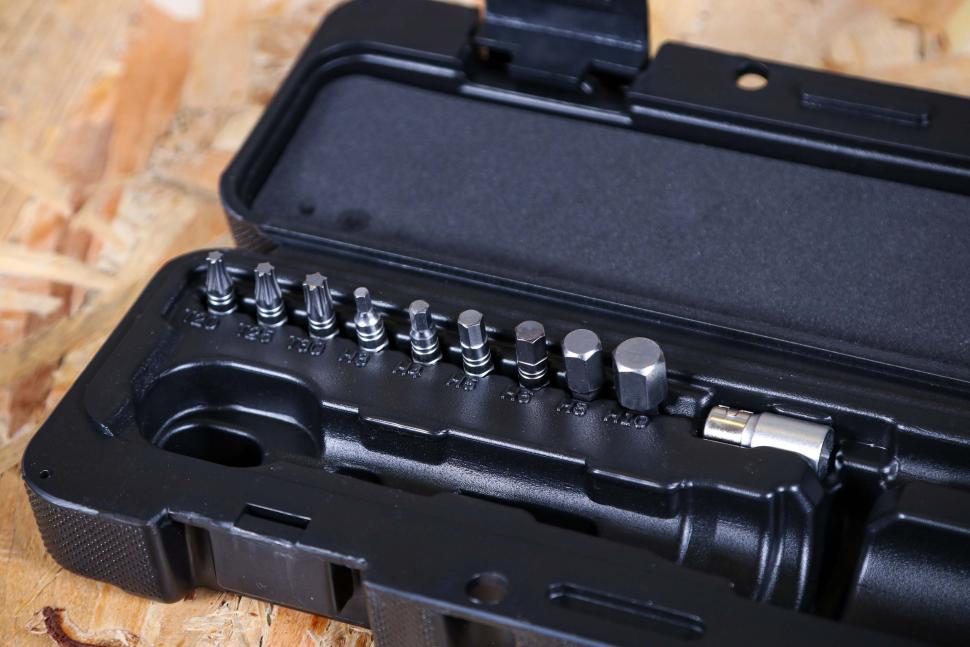
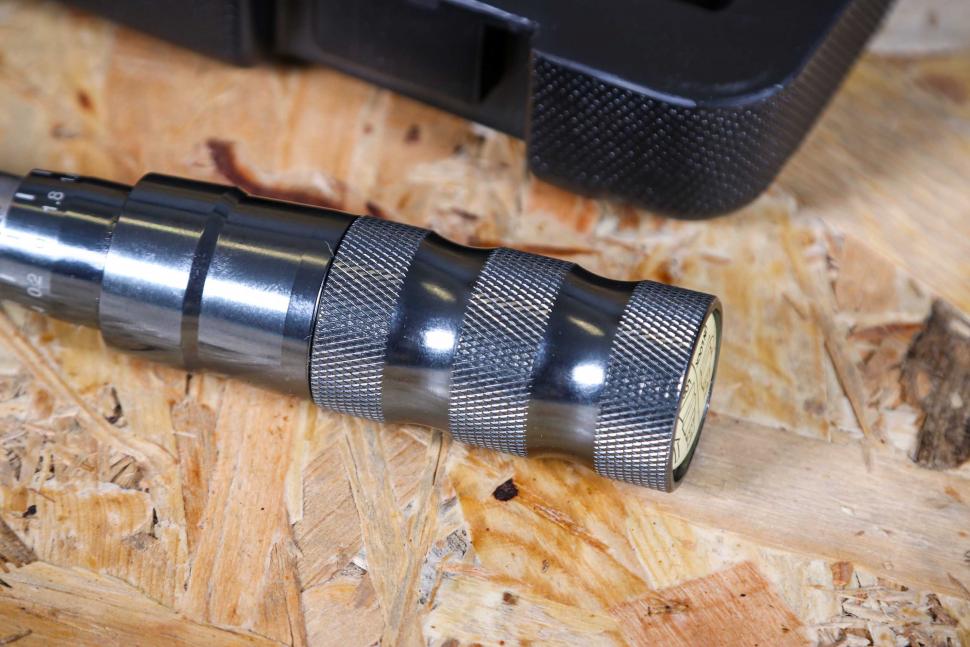
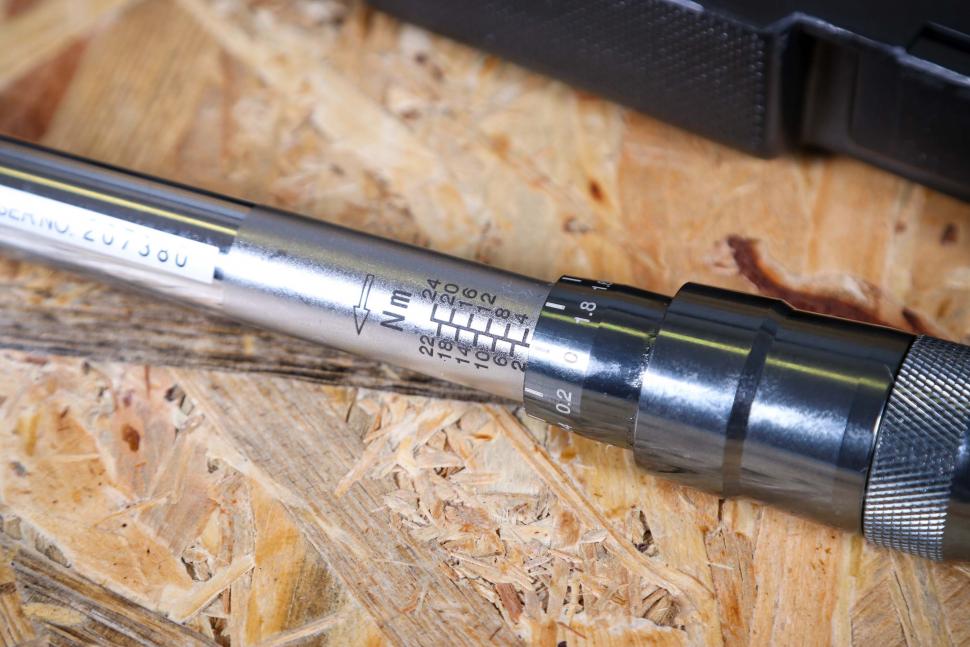


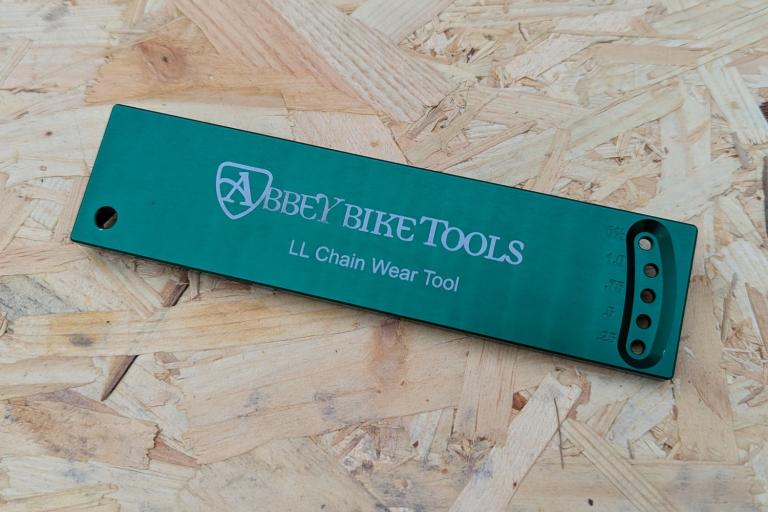
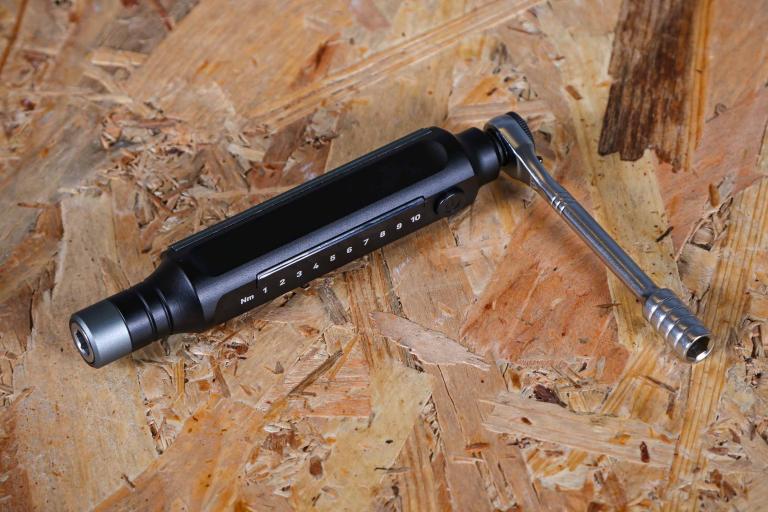
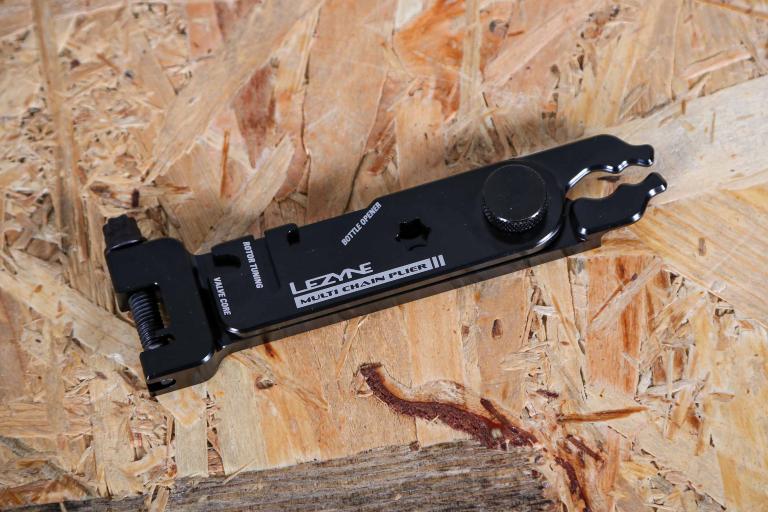
"But we have street trees / obscured entrances"...
Hiya, Dave here from J.Laverack. This test bike features our Streamline cable routing design, but not internally routed (hidden) cables as it's not...
I built a gravel bike last summer - a Ridley Kanzo Fast with Campag Ekar - and have used it through the winter with mudguards for club runs and the...
It's only for a minute
Another Conservative bemused at how but a Conservative policy is turning out
would be good to see you test the Newmen wheels the weight/price ratio is extremely good and suggests that europeans can match the chinese in this...
I don't think you have. I think their point was:...
Should be a lifetime driving ban. Who could seriously argue against the justice of that in this case?
Another 'sound-alike' mid tier offer, so I get all excited and buy a bunch of them thinking I've got an absolute steal. Only to then realise I've...